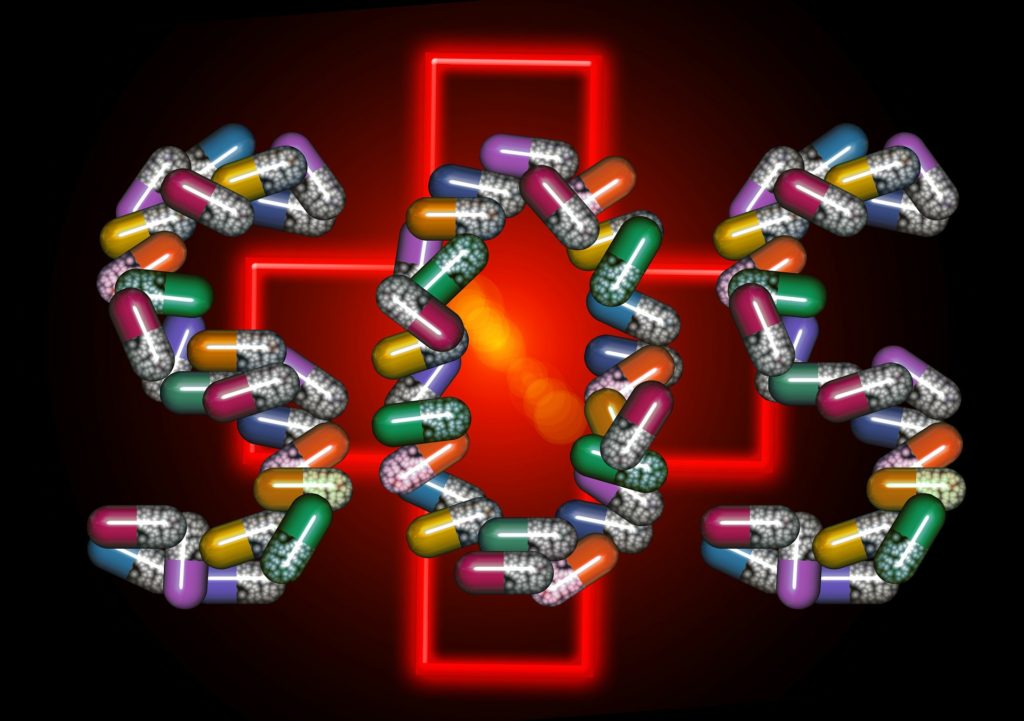Overview of Modern Life-saving processes
As a modern society, we’ve come to believe that antibiotics, pasteurization, and sterilization are the saviours of our health, but in reality, they bring with them a threat—a dark side that rarely gets exposed.
Beneficial bacteria in the gut have a direct influence on the immune system and are your first line of defence against infectious agents and sickness. Antibiotics are indiscriminate destroyers of all bacteria in the human body, including the beneficial bacteria that are not only in the gut but also in other organs and tissues.
Further, for the past fifty or so years we’ve been waging an all-out war against germs, a war that includes sterilization and pasteurization. In our efforts to destroy bacteria, we’ve created more virulent strains that have become resistant to our weapons.
While no one can argue the fact that antibiotics have saved countless lives, and that sterilization and pasteurization have their place, this war on germs has yet to show signs of relenting. And as with any war, there are casualties. The casualties, however, are often the patients, not just the germs. Fortunately, there are solutions, and fermented foods have much they can offer us to bolster our defences.
Antibiotics both bane and beneficial
Within a population of healthy adults, the composition of gastrointestinal bacteria is relatively stable over time. Diet, disease, and the environment, however, can each influence the bacterial balance. Shifts in these variables that affect the continuity of our gut’s microflora can serve as threats to our health. For example, when we take antibiotics to kill off infectious bacteria, we also destroy large amounts of beneficial flora. When good gut bacteria are killed off, it can severely impair digestion and absorption of nutrients at a time when your body needs them most.
The word “antibiotic” comes from the Greek, anti, meaning “against,” and bios, meaning “life.” Antibiotics are chemical compounds that are themselves derived from microbes. But because they’re unable to seek and destroy specific pathogens, antibiotics do collateral damage to good microbes in our bodies.
In addition, research shows that antibiotics also mutate beneficial bacteria, which gain resistance to antibiotics, inspiring a vicious cycle of the need for stronger antibiotics that again leads to increased resistance. This is how we end up creating super bacteria, such as multi-drug resistant tuberculosis, staph, and strep. Ultimately, repeated and unnecessary use of antibiotics weakens our immune systems.
Numerous studies have confirmed that consistent use of antibiotics increases the population of antibiotic resistant genes within the microbiome. While some good bacteria are killed along with the bad when you take an antibiotic, some bacteria, and all yeasts, are left unharmed. This changes the microflora balance and opens the door to an overgrowth of yeasts. One species of yeasts, Candida albicans, colonize rapidly, especially in your intestines and other parts of your digestive tract, where they contribute to a vast majority of diseases and infections.
Direct consequences of yeast overgrowth from just one course of antibiotics can often include a number of common side effects such as diarrhoea, vaginal yeast infections, and oral thrush. In most cases, these side effects go away within a short time once the antibiotics are discontinued and the microflora recovers its normal balance.
Another antibiotic that can change the normal balance of microflora is penicillin, which damages both Lactobacilli and Bifidobacterium, while promoting the growth of pathogenic bacteria. Lactobacilli are the only elements in the body that keep candida and other harmful yeast infections under control, so as these bacteria are destroyed whenever you take a course of antibiotics, candida spread like wildfire throughout your system.
A primary effect of candida is suppression of the immune system, which means that the very drug you are taking to combat disease is impairing your only natural defence against it, both immediately and in the future. So effectively, an intestinal tract devoid of proper friendly intestinal bacteria is a breeding ground for future illness.
A final example is tetracyclines, antibiotics commonly used to treat acne and rosacea. These do not actually kill bacteria, but rather they prevent bacteria from growing, including the beneficial bacteria. Tetracyclines hurt the integrity of the gut wall, making it more susceptible to infection, and engage the immune system to attack itself, resulting in an autoimmune effect. Meanwhile, they facilitate detrimental fungus and bacterial growth in the intestinal tract, which can result in candida.
Because the use of antibiotics is necessary during certain disease conditions, it is crucial to replenish the body with probiotics and good microorganisms. Fortunately, consuming fermented foods will actively replenish your intestinal bacteria during and after a dose of antibiotics. Fermented foods rapidly return the normal microflora to its balance as their rich supply of probiotics reduces levels of certain harmful bacteria and yeasts through a natural process of competition.
Daily consumption of fermented foods ensures a high number of immune-boosting microflora and promotes probiotic growth. Conversely, a poor diet, such as one high in sugar, which yeasts and bacteria thrive on, or any diet that does not contain probiotics, indirectly contributes to the recurrence of future health problems
Pasteurization and its effects
Ever since its commercial use began in the 1920s, pasteurization has become a controversial topic. Pasteurization, the process of heating milk or other liquids to destroy microorganisms that can cause disease, kills the friendly bacteria along with the pathogenic.
The fermentation of milk illustrates the delicate balance between microbes and human intervention. When unpasteurized, or raw, milk is left unrefrigerated for a period, it turns sour because of the growth of Lactobacilli. When this sour milk is used to prepare bread, it creates a special sour taste and increases the softness of the dough.
Pasteurized milk, on the other hand, is devoid of all microorganisms, and when left without refrigeration, it spoils due to the growth of undesirable bacteria. Ultra-pasteurization, which takes milk from a chilled temperature to above the boiling point in less than two seconds, is even more detrimental than standard pasteurization methods. While this process gives milk a longer shelf life, it alters casein (the protein found in milk) and is believed to be one of the factors creating rising rates of casein sensitivity.
Most commercially produced dairy products are pasteurized, which destroys beneficial probiotics and enzymes. Raw milk and fermented dairy products, such as yogurt and kefir, are better choices because these are enzyme rich and contain the probiotics that restore friendly microflora.
The importance of prebiotics to negate the above effects of antibiotics and Pasteurization
In addition to eating probiotic-rich fermented foods, you need to provide a congenial internal environment for the probiotic microbes to be produced and to multiply. Certain foods we select—called prebiotics—provide nutrients and create a compatible terrain for probiotic microbes to thrive.
Dietary fibre is the best known prebiotic. While your body can’t fully digest fibre and turn it into fuel, probiotic microbes can. Prebiotics are carbohydrates such as sugar and starch and are found in all foods of plant origin. Because humans do not have the necessary enzymes to break down these specific types of carbohydrates into smaller pieces that can be absorbed by the gut, they are available as a source of fuel for the beneficial bacteria in the large bowel. In this way, prebiotics help discourages the growth and activity of harmful bacteria by selectively increasing the numbers of beneficial bacteria.
Adding fibre to your daily diet is essential for digestive health. Dietary fibre provides relief from symptoms such as irritable bowel syndrome, chronic abdominal pain, and various other inflammatory conditions in the gastrointestinal tract. If you’re not accustomed to eating lots of fibre, you’ll want to add these foods gradually, to give your body time to adjust. (Too much fibre at one time may cause temporary discomfort from symptoms such as bloating or gas.) And as you increase your fibre intake, be sure to also increase your hydration by drinking more water. The bottom line is that inulin and fructooligosaccharides boost intestinal flora and need to be a regular part of the diet to ensure optimum health.

